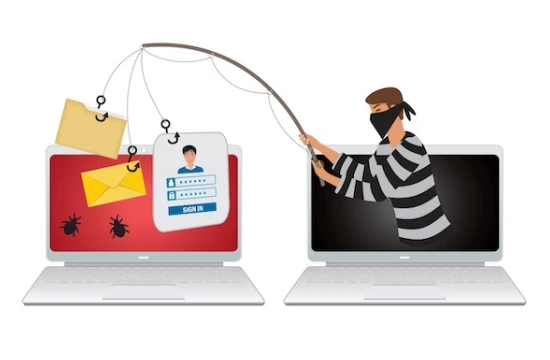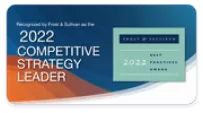What is Vishing (Victim Identify Theft)?
Vishing, short for "voice phishing," is a form of social engineering attack where cybercriminals use telephone calls or voice messages to deceive individuals into revealing sensitive personal or financial information. Often categorized as a type of victim identity theft, vishing scams are designed to exploit trust, fear, or urgency, tricking people into providing details such as credit card numbers, bank account information, Social Security numbers, or login credentials. Unlike traditional phishing, which relies on email, or smishing, which uses text messages, vishing leverages the human voice—delivered via phone calls, robocalls, or voicemail—to create a convincing and immediate sense of legitimacy.
The mechanics of vishing are straightforward yet highly effective. Scammers typically impersonate trusted entities, such as banks, government agencies, utility companies, or tech support teams. For example, a victim might receive a call from someone claiming to be a bank representative, warning them about suspicious activity on their account and requesting verification details to "resolve the issue." In other cases, the attacker might leave a voicemail with a callback number, urging the recipient to act quickly to avoid penalties, account closures, or legal action. These tactics prey on human emotions, making vishing particularly dangerous because it bypasses many of the technological safeguards, like spam filters, that protect against email-based phishing.
One of the reasons vishing is so successful is its ability to exploit the inherent trust people place in phone communications. Unlike emails, which can be flagged as suspicious due to poor grammar or unfamiliar senders, a well-executed vishing call can sound professional and authoritative. Advances in technology have further amplified the threat. Scammers now use Voice over Internet Protocol (VoIP) systems to spoof caller IDs, making it appear as though the call is coming from a legitimate source. Additionally, artificial intelligence and voice synthesis tools allow attackers to mimic voices or create highly realistic robocalls, increasing their chances of success.
The consequences of falling victim to a vishing scam can be severe. Once scammers obtain sensitive information, they can drain bank accounts, open fraudulent credit lines, or even commit identity theft on a larger scale, leaving victims to deal with financial loss, damaged credit, and lengthy recovery processes. Moreover, businesses are also at risk, as employees might inadvertently disclose corporate credentials or confidential data during a vishing attack, leading to data breaches or ransomware incidents.
In essence, vishing is a sophisticated and evolving form of victim identity theft that combines technology with psychological manipulation. Understanding its methods and recognizing the red flags—such as unsolicited calls demanding immediate action or personal information—are critical steps in protecting yourself from this pervasive cyberthreat. As scammers continue to refine their techniques, awareness and vigilance remain the first lines of defense against vishing attacks.
Common Vishing Techniques and Examples
Vishing attacks are highly effective because they leverage a variety of sophisticated techniques tailored to exploit human psychology and trust. By understanding the common methods scammers use and reviewing real-world examples, individuals and organizations can better recognize and defend against these threats. Below are some of the most prevalent vishing techniques, along with illustrative examples.
Impersonation of Trusted Entities
One of the most common vishing techniques is impersonating a legitimate organization or authority figure. Scammers often pose as representatives from banks, government agencies, or well-known companies to gain credibility. For instance, a victim might receive a call from someone claiming to be from the IRS, warning of unpaid taxes and threatening legal action unless payment details are provided immediately. The caller may use official-sounding language and spoofed caller ID to make the call appear authentic.Example: In 2020, the Federal Trade Commission (FTC) reported a surge in vishing scams where fraudsters posed as Social Security Administration officials, claiming the victim’s SSN had been suspended due to fraudulent activity and demanding personal information to “reinstate” it.
Creating Urgency and Fear
Scammers frequently use urgency and fear to pressure victims into acting without thinking. They might claim that the victim’s bank account has been compromised, a warrant has been issued for their arrest, or their computer has been infected with malware. This tactic leaves little time for the victim to verify the call’s legitimacy.Example: A common scam involves a caller pretending to be from a tech support company, such as Microsoft, claiming the victim’s computer has a virus. The caller insists on immediate action, instructing the victim to provide remote access or payment for “repairs.”
Spoofing Caller ID
With Voice over Internet Protocol (VoIP) technology, scammers can manipulate caller ID information to display a legitimate phone number, such as that of a bank or government agency. This makes the call appear trustworthy, even to cautious individuals who check caller ID.Example: In a widely reported case, scammers spoofed the phone number of a local police department, informing victims they had missed jury duty and needed to pay a fine over the phone to avoid arrest.
Pretexting and Personalization
Pretexting involves scammers gathering preliminary information about a target—often from social media or data breaches—to make their calls more convincing. They might reference specific details, like the victim’s name, address, or recent transactions, to build trust.Example: A scammer might call a victim, claiming to be from their bank, and mention a recent purchase to “verify” their identity before asking for account details.
Robocalls and Voice Messages
Automated robocalls and pre-recorded voice messages are increasingly used in vishing scams to reach a large number of potential victims. These messages often prompt the recipient to call back a specific number, where a live scammer then attempts to extract information.Example: During tax season, many people receive robocalls claiming to be from the IRS, warning of legal consequences and instructing victims to call back to settle a fabricated debt.
These techniques highlight the adaptability and creativity of vishing scammers. By combining technology with social engineering, they exploit trust and urgency to devastating effect. Awareness of these methods—coupled with skepticism toward unsolicited calls—can significantly reduce the risk of falling victim to vishing attacks.
Differences Between Vishing, Phishing, and Smishing
Vishing, phishing, and smishing are all forms of social engineering attacks aimed at stealing sensitive information, such as personal data, financial details, or login credentials. While they share the common goal of deceiving victims, they differ significantly in their methods of delivery and execution. Understanding these differences is crucial for recognizing and defending against each type of threat.
Phishing: Email-Based Deception
Phishing is the most well-known of the three and typically involves fraudulent emails that appear to come from a legitimate source. These emails often trick victims into clicking malicious links, downloading infected attachments, or entering personal information on fake websites. Phishing attacks rely heavily on written communication and visual cues, such as logos or branding, to mimic trusted entities like banks, retailers, or employers.
Key Characteristics:
- Delivered via email.
- Often uses spoofed email addresses or domains (e.g., "support@paypa1.com" instead of "support@paypal.com").
- Relies on the victim interacting with a link or attachment.
- Can be mitigated with spam filters and email security tools.
Example: An email claiming to be from Amazon might ask the recipient to verify their account by clicking a link, leading to a fake login page that captures their credentials.
Vishing: Voice-Based Manipulation
Vishing, or voice phishing, uses phone calls, robocalls, or voice messages to deceive victims. Unlike phishing, which relies on written content, vishing leverages the human voice to create a sense of urgency and authority. Scammers often impersonate trusted organizations, such as banks or government agencies, and use tactics like caller ID spoofing to appear legitimate. Vishing exploits the immediacy of voice communication, leaving victims little time to verify the caller’s identity.
Key Characteristics:
- Delivered via phone calls or voice messages.
- Uses social engineering tactics like fear, urgency, or trust.
- Often involves caller ID spoofing or AI-generated voices.
- Harder to filter than emails, as it bypasses traditional cybersecurity tools.
Example: A caller pretending to be from the IRS might threaten legal action unless the victim provides payment details over the phone.
Smishing: Text Message Scams
Smishing, or SMS phishing, involves fraudulent text messages sent to mobile devices. Similar to phishing, smishing relies on written communication, but it uses SMS or messaging apps instead of email. These messages often contain malicious links or prompt the recipient to reply with sensitive information. Smishing takes advantage of the widespread use of smartphones and the tendency to trust text messages more than emails.
Key Characteristics:
- Delivered via SMS or messaging apps (e.g., WhatsApp, iMessage).
- Often includes shortened URLs or urgent calls to action.
- Targets mobile users, who may be less cautious on smaller screens.
- Can be mitigated with mobile security apps or by blocking unknown numbers.
Example: A text message claiming to be from a delivery service might ask the recipient to click a link to reschedule a package, leading to a fake website that steals personal information.
Key Differences Summarized:
- Medium: Phishing uses email, vishing uses voice calls, and smishing uses text messages.
- Interaction: Phishing and smishing often require clicking links, while vishing relies on verbal interaction.
- Detection: Phishing can be caught by email filters, smishing by mobile security, but vishing is harder to detect due to its reliance on human trust.
- Victim Behavior: Vishing exploits real-time pressure, while phishing and smishing allow more time for reflection (though urgency is still a factor).
By recognizing the distinct characteristics of vishing, phishing, and smishing, individuals can adopt targeted strategies to protect themselves, such as verifying unsolicited communications, avoiding unknown links, and being cautious of urgent requests for information.






